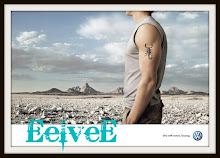March 22, 2006 | 01:15 PM
Am I dead or alive ?
At this moment do you percieve me dead or alive ? If someone tells you I have been in a serious accident. and till your sensory information asks you to percieve my state as one or the other, I could be dead and alive at the same time. So if all existence is imaginary, illusory, then you have effectively put me in a limbo, neither dead nor alive ! This thought was triggerd by Tushar's post included below,
Schroedinger's cat is a quantum paradox posed by austrian physicist Erwin Schroedinger in the 1920s. it is what is called a GENDANKENEXPERIMENT - german for a thought experiment.
in this thought experiment schroedinger proposed to einstein that a cat be put in a box. along with the cat, the box also contains a radioactive mineral and a vial of prussic acid (HCN). there is a 50 per cent chance that the radioactive mineral decays in say an hour. if the radioactive mineral decays, it emits a quantum particle which breaks the vial and releases the prussic acid and kills the cat.
so, at the end of the one hour, there is 50-50 chance that the cat is dead or alive.
now, this is where the fun begins.
unless the observer actually opens the box and checks, the cat is neither dead, nor alive… it exists in both states. it is alive as well as dead.
it is the observer who ‘collapses the dead-alive wave function’. he opens the box and finds the cat to be either dead or alive. and that determines the state of the schroedinger’s cat.
the event does not happen till you observe it.
in my post, i have used something i am working on for my script/graphic novel. i have stretched this quantum paradox to a metaphysical supposition.
it is thought that implies existence.
interestingly, while thought experiments are used as probes to speculate on the metaphysical implications of quantum physics, some cultures including our own, have always put a heavy stress on stretching the boundaries of existence through the explorations of the mind. they have a rich trove of tropes - yantras, mantras, koans... the stress has always been on pushing the limits of knowledge and going beyond the percieved reality. rationale... reason... explanation, these cultures have always believed to be superficial... in these cultures, the emphasis has been on freeing the mind of the limitation of senses.
however, since aristotle, reason took centerstage in certain cultures. here, 'scientific' approach was placed over speculation. it culminated in a Deterministic World View of the 19th century... The Age Of Reason was upon us with these cultures spreading thanks to the imperial conquests...
however, in the early decades of 1900, einstien forced the world to take a quantum leap. the special theory of relativity with its implications of time-space continuum and wave-particle duality forced a massive rethink.
it fuzzed up the boundaries between what is and what is not... however, the claims of the quantum world could not be experimentally verified as there were no machines powerful enough to test them. moreover, reason was simply not enough to deal with this paradigm shift.
in such situations, quantum physicists resorted to 'thought experiments'. einstien explained his relativity in the form of a thought experiment where a cyclist comes riding at the speed of light and swerves around another coming in the opposite direction. he suggested shifting of frames of references to understand the implications.
when it came to wave-particle duality, schroedinger proposed this thought experiment to einstien.
curiously enough... there is still a lot of stress being put on the fantastical and 'wow' factor of thought-experiments and the focus is still on resolving a paradox through experimentations and micro and macro extrapolations... this has served as a treasure trove of possibilities for minds on the creative front... from time travel to event-horizons... alternate universes and space-time warps...
the ancient cultures which valued the metaphysical quest however, had a much subtler approach to these quandaries without obsessing with it... its answer to metaphysical dilemmas was simple...
does the dog have a buddha nature?
"mu".
does brahman intrinsically know 'brahma' or is the one who knows 'brahma' a brahman?
"mu".
"mu" is the perfect response to a coffy bite situation.. when an argument continues, mu makes its presence felt...
mu is the brahman state of 'being'. neither right, nor wrong... just a probability cloud... a sacrosanct function full of choices that exists beyond the effect of observation... it may collapse in your thought and still stay untouched in mine...
Sunday, February 18, 2007
Subscribe to:
Post Comments (Atom)

No comments:
Post a Comment